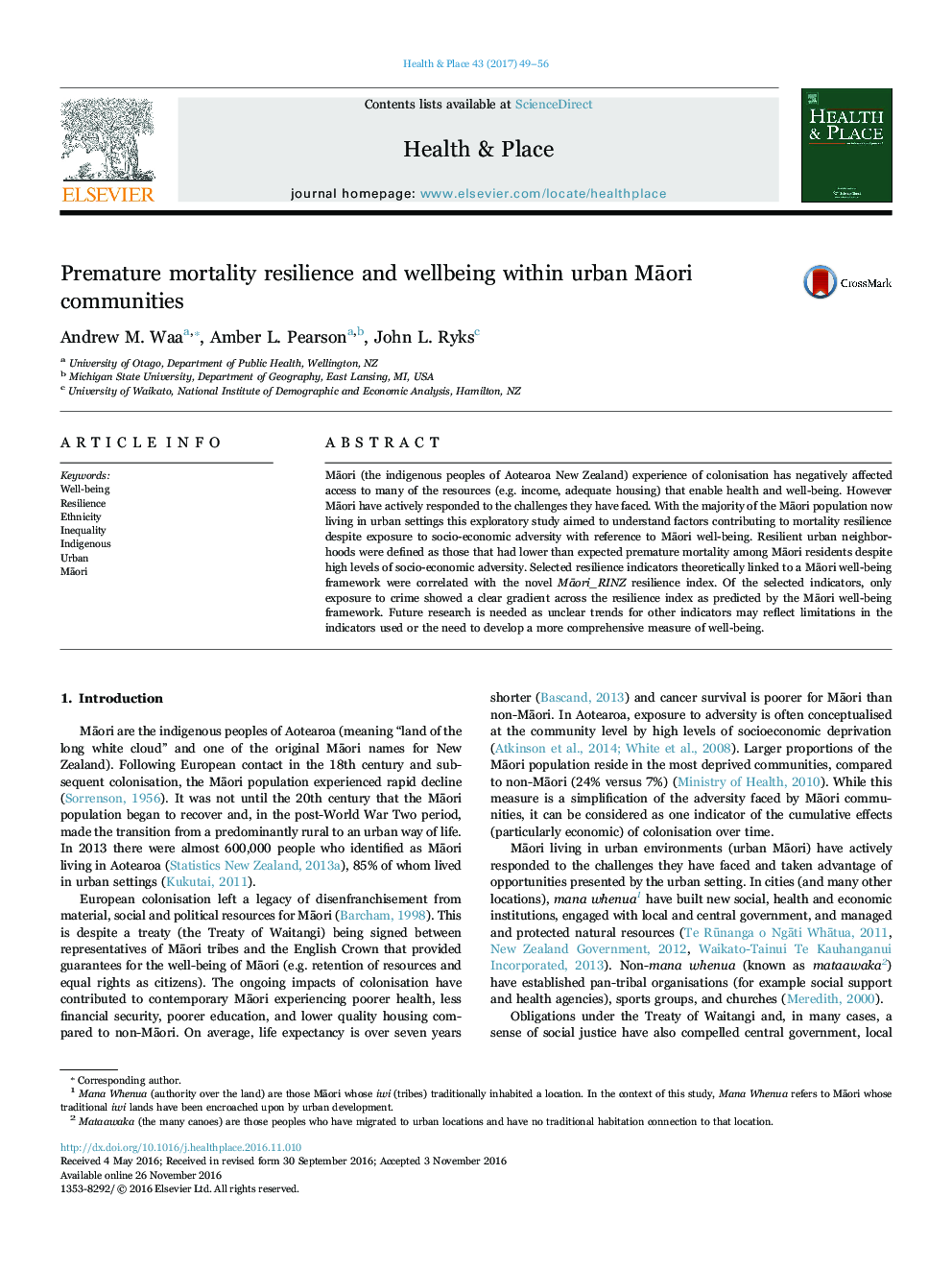| کد مقاله | کد نشریه | سال انتشار | مقاله انگلیسی | نسخه تمام متن |
|---|---|---|---|---|
| 5114869 | 1484518 | 2017 | 8 صفحه PDF | دانلود رایگان |
- This paper explored health resilience among urban New Zealand MÄori.
- Resilient urban neighborhoods were defined as having unexpectedly low mortality.
- Wellbeing indicators were correlated with a MÄori resiliency (MÄori_RINZ) index.
- Exposure to crime was the only variable associated with lower resilience.
- Better indicators of MÄori wellbeing need to be developed.
MÄori (the indigenous peoples of Aotearoa New Zealand) experience of colonisation has negatively affected access to many of the resources (e.g. income, adequate housing) that enable health and well-being. However MÄori have actively responded to the challenges they have faced. With the majority of the MÄori population now living in urban settings this exploratory study aimed to understand factors contributing to mortality resilience despite exposure to socio-economic adversity with reference to MÄori well-being. Resilient urban neighborhoods were defined as those that had lower than expected premature mortality among MÄori residents despite high levels of socio-economic adversity. Selected resilience indicators theoretically linked to a MÄori well-being framework were correlated with the novel MÄori_RINZ resilience index. Of the selected indicators, only exposure to crime showed a clear gradient across the resilience index as predicted by the MÄori well-being framework. Future research is needed as unclear trends for other indicators may reflect limitations in the indicators used or the need to develop a more comprehensive measure of well-being.
Journal: Health & Place - Volume 43, January 2017, Pages 49-56
